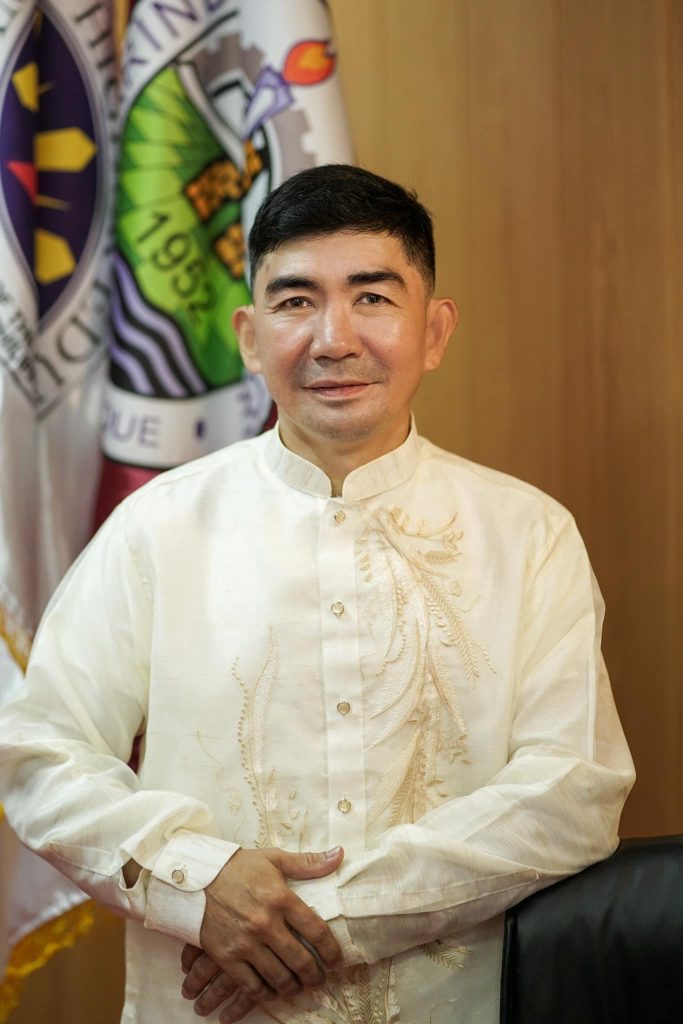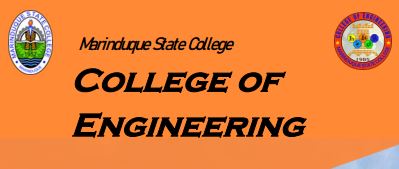About Us

Engr. Melito L. Hirondo
Dean
The School of Engineering started its operations in Academic Year (AY) 1986 – 1987 with 40 enrollees to the Bachelor of Science in Civil Engineering. MSC was then known as Marinduque School of Arts and Trades. Upon its conversion into Marinduque Institute of Science and Technology through RA 377 in 1998, a ladderized Civil Engineering curriculum was offered with 44 first graduates by March 2003. Simultaneously, a ladderized curriculum for the BS in Electrical Engineering was also offered. In a ladderized curriculum, a student may opt to graduate under the three-year Associate program in Civil Engineering or Electrical Engineering. This ladderized curriculum was enhanced sometime in 2008 to contain additional skills subjects thus enabling students to opt to graduate with a either Diploma in a one-year Building Electrician Course, or a Diploma in a two-year Industrial Electrician course or a Diploma in a three-year Automation Technician course. Similarly, students can also choose a two-year Computer Technician course, or a three-year Electronics Technician course.
In AY 2013 – 2014, the ladderized curriculum for the Bachelor of Science in Mechanical Engineering was also offered, giving a chance for students unable to finish with an NCII TESDA Certificate as a Welding & Fabrications Technician or as a Refrigeration and Airconditioning Technician.
The School of Engineering is one of the most multi-awarded Schools in Marinduque State College – from some of its top notch Board Exam passers to the research awards and prizes from competitions it has participated in through the years – the School is indeed poised to become one of MSC’s Centers of Excellence in the near future.
Civil Engineering
Level III Re-Accredited by the Accrediting Agency for Chartered Colleges and Universities in the Philippines (AACCUP), Inc.
About this Program
Civil Engineering is a profession that applies the basic principles of science in conjunction with mathematical and computational tools to solve problems associated with developing and sustaining civilized life in our planet. It is one of the broadest engineering disciplines both in terms of the range of problems that fall within its preview and in the range of knowledge required to solve those problems.
Program Educational Objective
In three to five years after graduation, BSCE graduates shall have:
- Applied the practice of Civil Engineering with a deep sense of professionalism, environmental awareness, social and ethical responsibilities.
- Engaged in personal and professional development activities keeping up with the needs society focusing in the fields of Construction, Geotechnical, Transportation, Structural, and Water Resources Engineering.
Computer Engineering
Level III Re-Accredited by the Accrediting Agency for Chartered Colleges and Universities in the Philippines (AACCUP), Inc.
About this Program
Computer Engineering is a profession that applies principles and methodologies in the analysis, design, implementation, and management of hardware, software and the integration of both.
Program Educational Objective
In three to five years after graduation, BSCpE graduates shall have:
- Applied the practice of Computer Engineering with a deep sense of professionalism, environmental awareness, social and ethical responsibilities.
- Engaged in personal and professional development activities keeping up with the needs of society focusing in the fields of Robotics Embedded Systems, Software and Hardware Engineering.
Electrical Engineering
Level III Re-Accredited by the Accrediting Agency for Chartered Colleges and Universities in the Philippines (AACCUP), Inc.
About the Program
Electrical Engineering is a profession that involves the conceptualization and development, design, and application of safe, healthy, ethical, economical, and sustainable generation, transmission, distribution, and utilization of electrical energy for the benefit of society and the environment through the knowledge of mathematics, physical sciences, information technology, and other allied sciences gained by the study, research, and practice.
Program Educational Objective
In three to five years after graduation, BSEE graduates shall have:
- Applied the practice of Computer Engineering with a deep sense of professionalism, environmental awareness, social and ethical responsibilities.
- Engaged in personal and professional development activities keeping up with the needs of society focusing in the fields of Electrical Engineering Design, Consultancy, Renewable Energy, Manufacturing, Sales and Marketing, Maintenance and Operation, Power Generation, Transmission and Distribution.
Mechanical Engineering
Level III Re-Accredited by the Accrediting Agency for Chartered Colleges and Universities in the Philippines (AACCUP), Inc.
About the Program
Mechanical Engineering is a profession that concerns itself with mechanical design, energy conservation fuel and combustion technologies, heat transfer, materials, noise control and acoustics, manufacturing processes, rail transportation, automatic control, product safety and reliability, solar energy, and technological impacts to society.
Program Educational Objective
In three to five years after graduation, BSME graduates shall have:
- Applied the practice of Computer Engineering with a deep sense of professionalism, environmental awareness, social and ethical responsibilities.
- Engaged in personal and professional development activities keeping up with the needs of society focusing in the fields of power plant and industrial engineering, refrigeration, air conditioning and ventilation systems, and design of mechanical system/machineries.
Electronics Engineering
Level III Re-Accredited by the Accrediting Agency for Chartered Colleges and Universities in the Philippines (AACCUP), Inc.
About the Program
Electronics Engineering is a branch of engineering that integrates available and emerging technologies with knowledge of mathematics, natural, social and applied sciences to conceptualize, design, and implement new, improved or innovative electronic, computer and communication systems, devices, goods, services, and processes.
Program Educational Objective
In three to five years after graduation, BSEE graduates shall have:
- Applied the practice of Computer Engineering with a deep sense of professionalism, environmental awareness, social and ethical responsibilities.
- Engaged in personal and professional development activities keeping up with the needs of society focusing in the fields of Electronic Engineering Design, Consultancy, Renewable Energy, Manufacturing, Sales and Marketing, Maintenance and Operation, Power Generation, Transmission and Distribution.
Selected Awards for Research
| Award | Event | Title |
|---|---|---|
| Best Paper Award (Student Category) | 9th MIMAROPA Health Research & Development Consortium Conference | Health Assessment on Household in Proximity to the Municipal Dumpsite in Banuyo, Gasan, Marinduque: Input to GIS Map |
| Best Paper Award (Student Category) | 3rd Science and Technology Conference | Safety and Security Mechanisms for Motorcycles Using Wireless Sensor Network |
| First Place (Professional Category) | 1st Inter-agency Multidisciplinary RDE Conference | Development of Portable Nutritional Status Identifier Device Based on Body Mass Index |
Some of our Board Topnotchers
| Board Examination & Year | Rank | Name |
|---|---|---|
| Civil Engineering Licensure 2006 | 7th | Engr. Gary Melico |
| Electrical Engineerirng Licensure 2010 | 8th | Engr. Joel Juego |
| Master Plumber Licensure | 10th | Engr. Herman Historillo |
| Master Plumber Licensure 2004 | 6th | Engr. Rommel Largado |
Admission Requirements
First Year Students
- STEM Strand graduate
- Obtained at least 85% general average (F138)
- At least average in the College Entrance Test administered by Guidance and Counseling Services Unit (raw score shall be used in the determination of rank, particularly in the last qualifying slot);
- Has taken the “Engineering Readiness Test” administered by the College of Engineering and;
- Has undergone the interview to be administered by a designated personnel per program utilizing standard questions assisted by assessment rubric.
Transferee
- STEM Strand graduate or Non-STEM Strand graduate accepted and enrolled in the same engineering program the applicant wants to enroll in MSC from any HEI who has completed/passed the required bridging program of the previous institutions;
- At least average in the College Entrance Test administered by Guidance and Counselling Services Unit (raw score shall be used in the determination of rank, particularly in the last qualifying slot) and;
- Has undergone the interview to be administered by a designated personnel per program utilizing standard questions assisted by assessment rubric.


